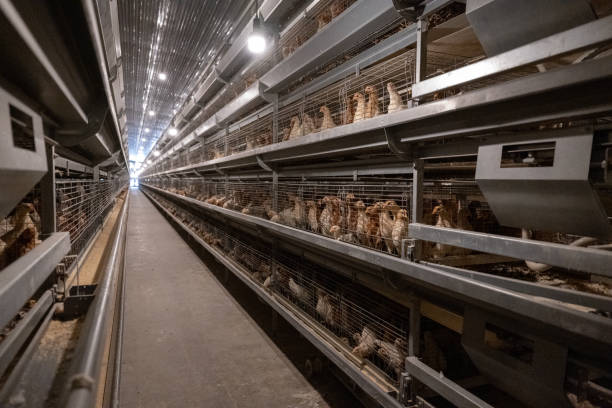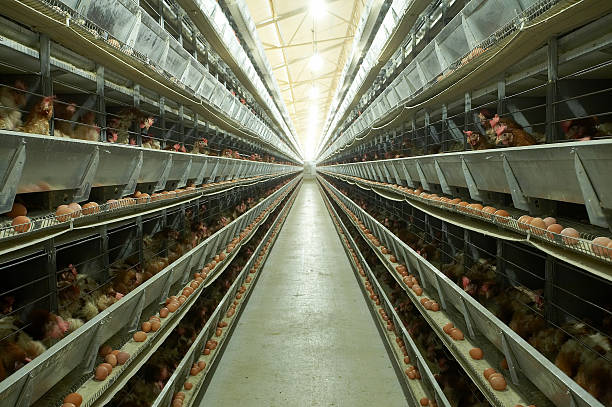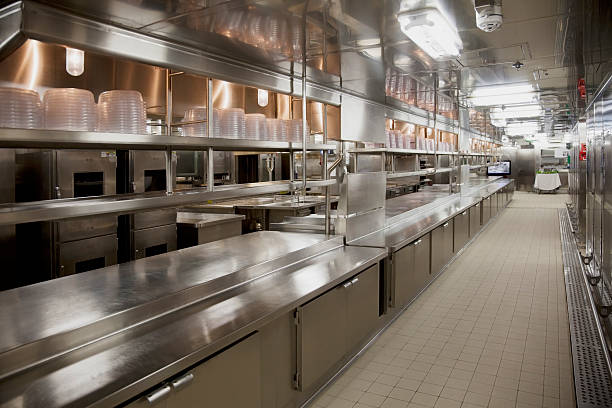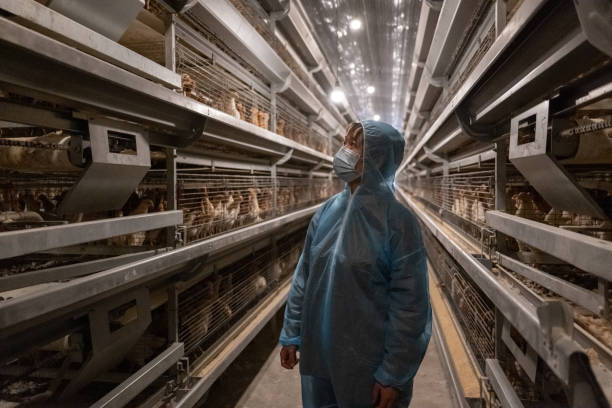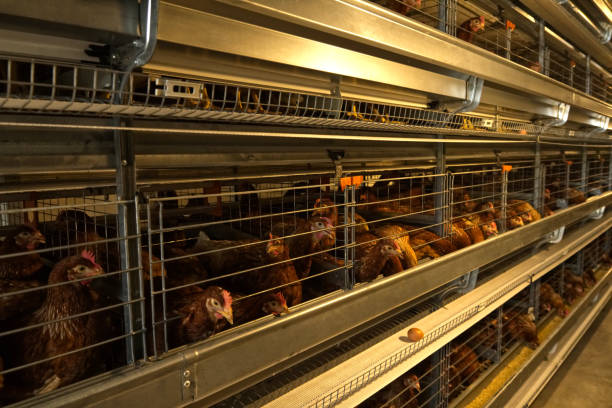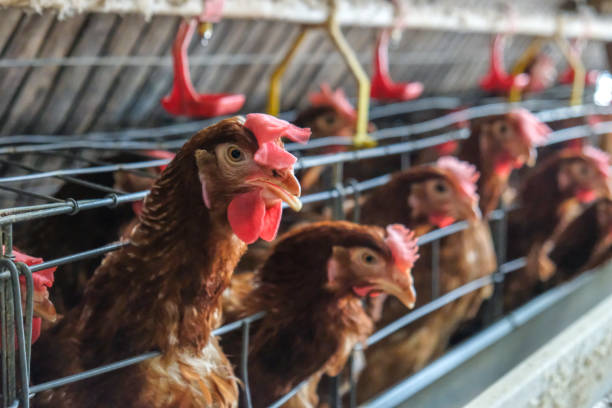Understanding Chicken Cage Costs: A Price List for Profitable Poultry Farming in Africa
Understanding Chicken Cage Costs: A Price List for Profitable Poultry Farming in Africa
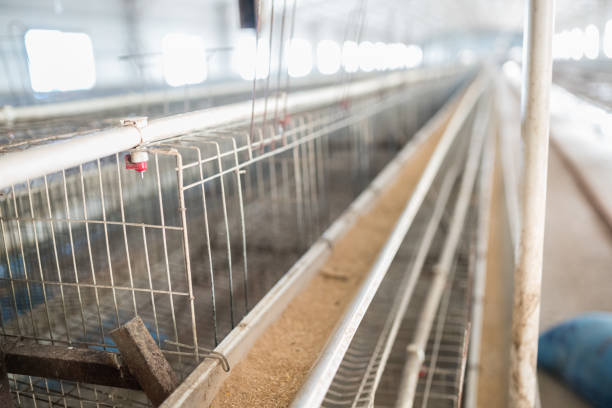
Poultry farming in Africa is experiencing rapid growth, driven by increasing demand for chicken meat and eggs. One critical element in establishing a successful poultry farm is choosing the right housing system. Chicken cages are a popular choice for many farmers due to their efficiency, ease of management, and potential for increased productivity. However, understanding the costs associated with chicken cages is essential for making informed investment decisions and ensuring profitability. This article aims to provide a comprehensive overview of chicken cage costs in the African context, offering a practical guide for farmers to navigate the market and select the most suitable options for their specific needs.
Why Choose Chicken Cages?
Before diving into the price details, let’s briefly outline the advantages of using chicken cages, which contribute to their popularity among poultry farmers:
Increased Space Efficiency: Cages allow for a higher stocking density, maximizing the number of birds you can raise in a given area.
Improved Hygiene and Disease Control: Cages separate the chickens from their waste, reducing the risk of disease outbreaks and improving overall hygiene.
Easier Management: Cages simplify tasks such as feeding, watering, and egg collection, saving time and labor costs.
Reduced Egg Breakage: In layer cages, eggs roll out of the cage into a collection trough, minimizing damage.
Better Monitoring: Cages make it easier to observe individual birds and identify any health problems early on.
Factors Influencing Chicken Cage Costs in Africa
Several factors influence the price of chicken cages in Africa. Understanding these factors is crucial for interpreting price lists and comparing different options effectively:
Type of Cage: The type of cage significantly affects the price. The two most common types are:
Layer Cages: Designed for egg-laying hens, these cages typically have a sloped floor to allow eggs to roll out for easy collection.
Broiler Cages: Designed for meat chickens (broilers), these cages are built to accommodate the rapid growth of the birds and provide adequate space.
Chick Cages: These are designed for raising chicks and growing young chickens.
Material Quality: The quality of materials used in cage construction is a key determinant of price and durability. Galvanized steel is the most common material, offering rust resistance and longevity. The thickness of the steel and the quality of the galvanization process will impact the price.
Cage Capacity: The number of chickens that a cage can hold directly influences its price. Cages with higher capacity tend to be more expensive but can offer better value in terms of space utilization. Different cage sizes hold different amounts of birds, generally ranging from 90, 96, 120 and 160 birds per set.
Automation Level: The level of automation incorporated into the cage system affects the price. Automated systems for feeding, watering, and egg collection can significantly reduce labor costs but come with a higher initial investment.
Manufacturer/Supplier: The reputation and location of the manufacturer or supplier can also impact the price. Established brands with a track record of quality and customer service may charge a premium.
Transportation Costs: Transportation costs can be a significant factor, especially in Africa, where infrastructure may be limited and distances can be vast. The cost of transporting cages from the manufacturer or supplier to your farm needs to be factored into the overall cost.
Import Duties and Taxes: Depending on the country, import duties and taxes can add to the cost of imported chicken cages. It’s essential to research the applicable tariffs and taxes in your region.
Currency Exchange Rates: Fluctuations in currency exchange rates can impact the cost of imported cages, especially if you are purchasing from a supplier in a different country.
Accessories: Some chicken cage systems come with accessories, such as feeding and drinking lines, manure removal systems, and egg collection devices. The inclusion of these accessories will add to the overall cost of the system.
Chicken Cage Price List in Africa (Estimates)
It’s important to note that the following prices are estimates and can vary depending on the factors mentioned above. It’s always advisable to obtain quotes from multiple suppliers before making a purchase decision. The prices listed are in USD (United States Dollars) for easy comparison:
Layer Cages:
Manual Layer Cages (3 tiers, 90-160 birds/set): \$600 – \$1,500 per set
This type of cage requires manual feeding, watering, and egg collection.
Semi-Automatic Layer Cages (3 tiers, 90-160 birds/set): \$1,600 – \$3,000 per set
These cages typically have automated feeding and/or watering systems but require manual egg collection.
Fully Automatic Layer Cages (3 tiers, 90-160 birds/set): \$3,000 – \$6,000 per set
These cages have automated feeding, watering, and egg collection systems.
Broiler Cages:
Manual Broiler Cages (3 tiers, birds depending on age): \$700 – \$1,800 per set
These cages require manual feeding and watering.
Semi-Automatic Broiler Cages (3 tiers, birds depending on age): \$1,800 – \$3,500 per set
These cages typically have automated feeding and/or watering systems.
Fully Automatic Broiler Cages (3 tiers, birds depending on age): \$3,500 – \$7,000 per set
These cages have automated feeding and watering systems.
Important Considerations When Choosing Chicken Cages
Beyond the price, several other factors should be considered when selecting chicken cages:
Bird Welfare: Ensure that the cages provide adequate space for the birds to move around comfortably and exhibit natural behaviors. Overcrowding can lead to stress and disease.
Ventilation: Adequate ventilation is crucial for maintaining air quality and preventing respiratory problems. Consider cages with good ventilation designs or invest in ventilation systems for your poultry house.
Ease of Cleaning: Choose cages that are easy to clean and disinfect to maintain hygiene and prevent disease outbreaks.
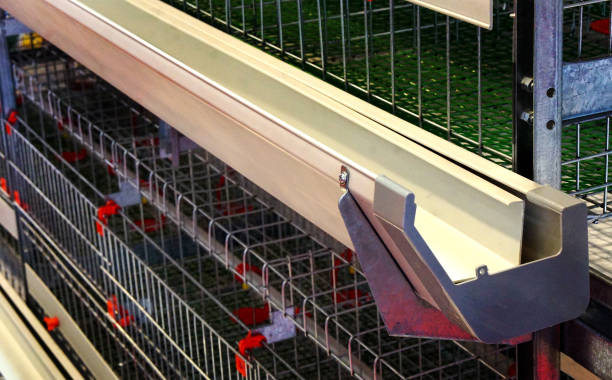
Durability: Invest in cages made from high-quality materials that can withstand the rigors of daily use and the harsh African climate.
Warranty and Support: Check if the supplier offers a warranty on the cages and provides after-sales support, such as installation assistance and maintenance services.
Local Regulations: Be aware of any local regulations or standards related to poultry housing and ensure that the cages you choose comply with these requirements.
Future Expansion: Consider your future plans for expansion and choose a cage system that can be easily expanded or adapted to accommodate your growing flock.
Tips for Minimizing Chicken Cage Costs
While investing in quality chicken cages is essential, there are several ways to minimize costs without compromising on quality or bird welfare:
Compare Quotes from Multiple Suppliers: Obtain quotes from several suppliers and compare the prices, features, and warranty terms.
Consider Second-Hand Cages: If your budget is limited, consider purchasing second-hand cages in good condition. However, be sure to inspect them thoroughly for any damage or wear and tear.
Negotiate with Suppliers: Don’t be afraid to negotiate with suppliers to get a better price, especially if you are purchasing a large quantity of cages.
Buy in Bulk: Purchasing cages in bulk can often result in significant discounts.
Explore Local Manufacturers: Consider purchasing cages from local manufacturers or fabricators. They may offer more competitive prices and shorter lead times.
Proper Maintenance: Regularly maintain and repair your cages to extend their lifespan and avoid costly replacements.
Consider Payment Plans: Some suppliers may offer payment plans or financing options to help you spread out the cost of your chicken cages.
DIY Options: If you have the skills and resources, you may be able to build your own chicken cages using locally sourced materials. However, be sure to follow proper design and construction guidelines to ensure bird welfare and safety.
Making the Right Investment
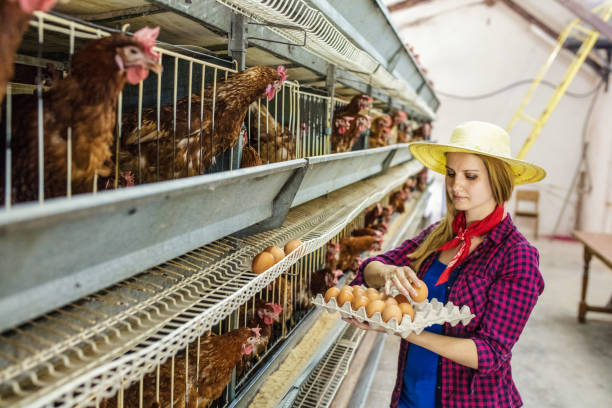
Choosing the right chicken cages for your poultry farm in Africa is a critical decision that can significantly impact your profitability and success. By understanding the various factors that influence chicken cage costs, comparing different options, and considering bird welfare and other important considerations, you can make an informed investment that will help you maximize your production and achieve your business goals. The provided price list serves as a starting point, but remember that thorough research and consultation with experienced poultry farmers and suppliers are essential for making the best decision for your specific needs. Poultry farming is a long-term investment, and choosing the right equipment is a cornerstone of sustainable and profitable poultry business. Don’t rush the decision-making process, and prioritize quality, durability, and bird welfare to ensure a successful and rewarding venture. Remember to stay adaptable and continuously learn about best practices in poultry management to optimize your operations and stay ahead in the competitive African poultry market.



